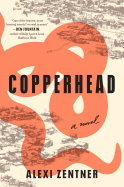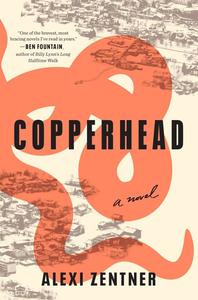
 The racist and anti-Semitic violence in Charlottesville, Va., in August 2017 has inspired a spate of nonfiction, like ((((Semitism)))) and Rising Out of Hatred, that attempts to expose the machinations of white nationalist and other hate groups in the United States. For all the insight these works offer, an investigation of the question of how bigotry poisons the heart and warps the mind may be better suited to the sophistication and subtlety of the novelist's art. Alexi Zentner's Copperhead is a vivid portrait of what happens to a thoughtful teenager who's forced to face hard questions of right and wrong, and to decide when familial love and loyalty may demand too much.
The racist and anti-Semitic violence in Charlottesville, Va., in August 2017 has inspired a spate of nonfiction, like ((((Semitism)))) and Rising Out of Hatred, that attempts to expose the machinations of white nationalist and other hate groups in the United States. For all the insight these works offer, an investigation of the question of how bigotry poisons the heart and warps the mind may be better suited to the sophistication and subtlety of the novelist's art. Alexi Zentner's Copperhead is a vivid portrait of what happens to a thoughtful teenager who's forced to face hard questions of right and wrong, and to decide when familial love and loyalty may demand too much.
Inspired by incidents from Zentner's (The Lobster Kings) childhood, Copperhead is set in the fictional town of Cortaca, a stand-in for real-life Ithaca, N.Y. The novel's protagonist, 17-year-old Jessup Collins, lives there in a double-wide trailer with his thrice-married mother and younger sister. His stepfather, David John Michaels, has just returned from serving a four-year prison sentence for attempting to cover up his son Ricky's killing of two African American university students that began as an act of self-defense. It's a bleak world, reminiscent of the ones depicted in novels like Stewart O'Nan's Snow Angels or Philipp Meyer's American Rust.
Jessup struggles to reconcile his image of David John: an honorable, hardworking husband and father, imprisoned for a well-intentioned mistake. But also a member of the Blessed Church of the White America, a white supremacist church that preaches the doctrine of "Rahowa," or "racial holy war," led by his brother Earl and used as a political platform by an ambitious, media-savvy college student, Brandon Rogers.
Over the course of a long, snowy weekend in November, Jessup, an honor roll student who's counting on a football scholarship to help lift him out of the marginal existence he shares with his loving family, is transformed from the hero of a playoff game to the focal point of a firestorm over a racially charged tragedy. Jessup's predicament is complicated by the fact that his girlfriend is Deanne Diggins, the daughter of his African American football coach.
Zentner skillfully sidesteps one of the principal risks in novels of this sort, that of turning his characters into mere ideological mouthpieces. Jessup, in particular, is a sympathetic young man who feels that, for all his striving, he can't escape the reality that "the starting gun went off well before he was born, and no matter how fast he runs, he'll never win this race." Both he and David John evolve as the novel hurtles along, its pace quickened by Zentner's innovative technique of carving up lengthy scenes into chapters of only two or three pages. It's easy to identify Copperhead's villains, but they're far less interesting than its flawed heroes. --Harvey Freedenberg, freelance reviewer
Shelf Talker: A teenager struggles with his family's involvement in a white supremacist church, as he encounters racial conflict himself.

